S3 E18: Nachiket Kelkar & Kadambari Deshpande (India)
Season 3 finale.
Charles and Jon speak to conservation power couple Nachiket Kelkar and Kadambari Deshpande from their home in Bangalore.
Kadambari and Nachiket both work to better understand how wildlife and people can co-exist in India, with Kadambari focussing on bats and Nachiket looking at riverine ecosystems and wildlife including the Ganges River Dolphin.
In a fascinating interview they discuss some of the threats facing the species they are working to protect as well as some of the facets of Indian society – and its sometimes striking tolerance for living alongside wildlife – that help to allow wildlife and people to co-exist.
They describe a recent trip in search with Bob Pitman (a 2022 podcast guest) in search of India’s remaining two Indus River Dolphins and also explain how Indian Flying Foxes are a cashew-farmer’s best friend!
https://www.mammalwatching.com/podcast/s3-e18-nachiket-kelkar-kadambari-deshpande-india/
S3 E17: African Golden Cat researcher Laila Bahaa-el-din
We talk with carnivore conservation expert Laila Bahaa-el-din.
Laila studied the near mythical African Golden Cat for her PhD in Gabon from 2010 – 2015 and was the first to study the species for a PhD.
She explains how her grandfather inspired her to follow a career in conservation and how a chance encounter with a mislabeled photo of an African Golden Cat saved her from studying raptors and took her to Gabon.
Laila describes how she studied the cats using camera traps and how a bird flying into a tent led to her one and only sighting during four years in the field.
She also recounts some of her very many adventures in Gabon that range from pleading with a female gorilla to keep quiet so as not to alert the silverback, to fleeing from an elephant while trying to get out of a poncho. No wonder she turned to poetry for solace!
S3 E16: Nigel Marven
We talk with wildlife filmmaker and presenter Nigel Marven from his home in the UK.
Nigel describes how a childhood fascination with wildlife led to his first job in TV, ‘wrangling worms’, and from there to working with Sir David Attenborough and ultimately presenting and making his own shows and films.
He explains why his films have often put the spotlight onto smaller, less well-known but fascinating mammals including Russian Desmans, Chinese Mole-shrews and Star-nosed Moles.
And he describes some of his most memorable mammal encounters from Bactrian Camels in China to swimming with Belugas in the Canadian Arctic.
S3 E15: Rachel Ashegbofe Ikemeh, Nigeria
We talk with Rachel Ashegbofe Ikemeh, founder of the SW/Niger Delta Conservation Project. Rachel, a Nigerian conservationist and visionary, has built a team of almost 100 people working at the grassroots community level to save the wildlife of the Niger Delta. The delta, densely populated and home to oil and gas reserves, is one of the most degraded environments on the planet. It contains over half of the swamp forest in West and Central Africa and the world’s largest mangrove forest. Yet 95% of the forest has been lost in the past 15 years.
Rachel describes her career and how she stumbled into conservation work despite the many obstacles she faced from a society where young women are expected to get married and have children and definitely not become biologists!
She talks about some of the delta’s many special mammals including critically endangered primates like the the Niger Delta Red Colobus that Rachel’s team is bringing back from the brink of extinction with the help of local communities.
And Rachel talks about some of the very many dangers she has faced working in this difficult area. She has run the gauntlet of everything from death threats to drowning and also had a very close encounter with an angry Elephant.
S3 E14: Shavez Cheema, Borneo
Charles and Jon talk to Shavez Cheema, founder of Borneo1Stop Wildlife, from his home in Sabah.
Shavez talks about a childhood in Brunei surrounded by wildlife and how, at the age of nine, he was inspired to work in conservation after seeing a neighbour’s senseless killing of a monitor lizard.
We discuss the massive potential for growth in conservation tourism across Borneo, and both the benefits and problems it might create. And Shavez explains why Borneo1Stop Wildlife is committed to opening up new mammalwatching areas and what visitors can expect from them.
Any conversation about Borneo will feature some premier league mammals. Shavez’s favorite moments include an unexpected encounter with a Tufted Ground Squirrel and walk away views of a Clouded Leopard.
S3 E13: Venkat Sankar & Nicole Haseley’s Big California Year
Charles and Jon talk with mammalwatching power couple Venkat Sankar & Nicole Haseley from their base at Stanford University in California.
Nicole and Venkat ‘accidentally’ turned 2024 into a Big California (Mammal) Year and ended up seeing a record breaking 150 species in the state by December 31.
They talk about some of their big year’s highs and lows as well as their favourite places in California to mammalwatch, and offer advice on how to identify small mammals in the field.
Plus Nicole explains why browsing iNaturalist pictures in public can be a fast track to romance.
S3 E12: Sid Francis, China
We talk to legendary mammal guide Sid Francis from his home in Sichuan.
Sid runs through a career as geographically diverse as it is professionally. After studying agriculture in the UK, he worked as – among other things – a shepherd in the Falkland Islands shepherd and a school teacher in Denmark before moving to China and becoming a wildlife guide.
We talk about how much China – and the public’s interest in wildlife there – has changed over the past few years.
Sid describes the current mammalwatching scene in Sichuan and Qinghai Provinces, both packed with a set of mouthwatering mammals.
And in a world exclusive we learn that mammalwatchers are almost ‘normal’ … at least compared to some birders!
S3 E11: The Horn of Africa
In the first episode of 2025 Charles and Jon talk about their December 2024 trip to Ethiopia’s Somali Region and Djibouti. From Dik-diks to Dibatags we discuss some of the rare mammals we encountered along with spectacular species like the poison-covered Crested Rat.
We describe the agony of arriving in a camp that looked like the set from a slasher movie, to the ecstasy of taking what appear to be the first ever photos there of a live Abyssinian Genet.
And we reveal how we faced up to one of our darkest fears: dinner in a Djibouti seafood restaurant.
S3 E10: Marcelo Gavensky & Argentina
In the last podcast episode of 2024, we talk to Marcelo Gavensky from his home in Buenos Aires. Marcelo is director of Birds Argentina, a tour company that recently expanded into running mammalwatching safaris.
Marcelo talks about the varied career that led him to establish his tour company. He describes some of his favourite encounters and his work to find a reliable method to see the rare Franciscana or La Plata River Dolphin. We also discuss Argentina’s massive mammalwatching potential. The country is home to 14 species of cats, 13 species of armadillos and – for the rodent enthusiasts – 44 species of tuco-tuco!
S3 E9: Rodney Jackson & Snow Leopards
Charles and Jon talk with Rodney Jackson the director of the Snow Leopard Conservancy, who is widely considered the leading world expert on the snow leopard, having devoted over forty years to researching and conserving this elusive cat in South and Central Asia.
In a wide-ranging chat Rodney describes his journey from a young boy looking for wildlife around his Harare home to the mountains of Nepal and embarking on a lifetime’s quest to study one of the world’s most enigmatic cats. He describes the difficulty in even seeing a cat in those early years and discusses the vital role well-managed community-based ecotourism is now playing in protecting them. He also describes many of his adventures along the way including perilous hikes and mysterious shamans.

